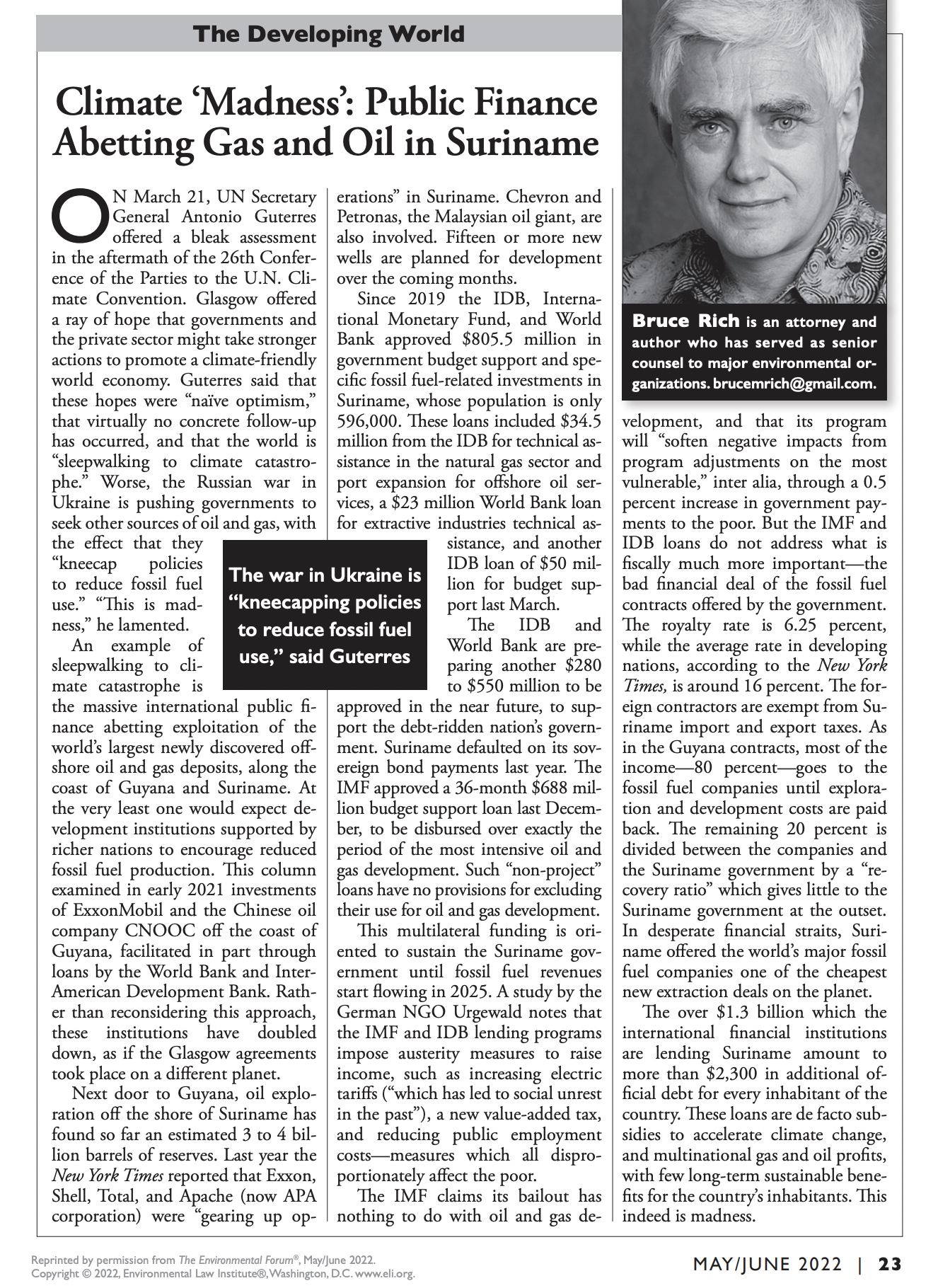- Bruce Rich
- Enviromental Fourm
- May/June 2022
- 23
At the very least one would expect development institutions supported by richer nations to encourage reduced fossil fuel production. This column examined in early 2021 investments of ExxonMobil and the Chinese oil company CNOOC off the coast of Guyana, facilitated in part through loans of the World Bank and Inter-American Development Bank. Rather than reconsidering this approach, these institutions have doubled down as if the Copenhagen and Glasgow COP agreements took place on a different planet.
Next door to Guyana, oil exploration offshore of Suriname has found so far an estimated 3 to 4 billion barrels of reserves. Last year the New York Times reported that Exxon, Shell, Total and Apache (now APA corporation) were “gearing up operations” in Suriname. Chevron and Petronas, the Malaysian oil giant, are also involved. Fifteen or more new wells are planned for development over the coming months.
Since 2019 the IMF, IDB and World Bank approved $805.5 million in government budget support and specific fossil fuel related investments in Suriname, whose population is only 596,000. These loans included $34.5 million for technical assistance in the natural gas sector and port expansion for offshore oil and gas servicing, a $23 million World Bank loan for extractive industries technical assistance, and an IDB loan of $50 million for budget support in March 2022. The IDB and World Bank are preparing another $280 to $550 million to be approved in the near future, to support the debt-ridden nation’s government. The IMF approved a 36 month $688 million budget support loan on December 22 last year, to be disbursed over exactly the period of the most intensive oil and gas development. These “non-project” loans have no provisions for excluding their use for oil and gas development. the IMF and IDB loans do not address what is financially much more important, the bad financial deal of the fossil fuel contracts offered by the government. The royalty rate is 6.25 percent, while the average rate in developing nations, according to the New York Times, is around 16 percent. The foreign contractors are exempt from Suriname import and export taxes. As in the Guyana contracts, most of the income—80 percent—goes to the fossil fuel companies until exploration and development costs are paid back.
In desperate financial straits, Suriname offered the world’s major fossil fuel companies one of the cheapest new extraction deals on the planet. The over $1.3 billion which the IFIs are lending Suriname amount to more than $2300 in additional official debt for every inhabitant of the country. These loans are de facto subsidies to accelerate climate change, and multinational gas and oil profits, with few long term sustainable benefits for the country’s inhabitants. This indeed is madness.



